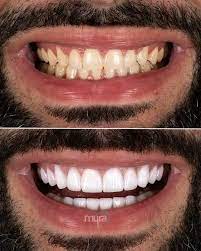Always Hydrate Your Skin

Buying moisturiser sounds like a simple task when you write it down on the to-do list. For dry, delicate, light, or dark skin, there are a variety of face moisturisers, body moisturisers, and lotions or balms available. The confusion only increases with the use of anti-aging and sunscreen chemicals.
Then, how can you know which moisturiser is ideal for your specific needs? To achieve the natural glow you desire for your skin, follow these no-frills tips from leading doctors.
How about an Ointment or a Lotion?
If your skin is itchy or dry, you may want to use a thick ointment to keep moisture in. Creams are lighter, hydrating, and suitable for all skin types. Lighter lotions (water is the primary ingredient) are best for oily skin.
When and where you apply your moisturiser throughout the day and a stronger one for the night. You can also use a heavier moisturising lotion on your face and a lighter one on your body. In the summer, opt for more light, moisturising moisturisers.
Guidelines for the use of moisturising products.
- Use a hat or sunscreen. Almost all dermatologists advocate the use of a moisturiser containing a sunblock of at minimum SPF 30 no matter what type of skin you have. You should opt for an oil- and fragrance-free product if you’re purchasing it for your face.
- Any skin type can benefit from antioxidant-rich moisturisers like green tea, camomile, pomegranate, or Lavandula extract. Free radicals, which break down skin cells, are partially neutralised by antioxidants.
- Acne-prone or oily skin. Alpha-hydroxy acids are also anti-aging. Non-comedogenic face moisturisers that don’t clog pores are essential if you’re prone to breakouts.
- Hydrate your skin with a thicker moisturiser that contains hyaluronic acid or dimethicone, both of which help keep it supple and smooth. Glycerine and propylene draw water to your skin, like proteins and urea. Lanolin, oil, and petrolatum keep moisture in the skin.
- Skin that is easily irritated. Use a hypoallergenic and fragrance-free moisturiser. Using fewer substances reduces the risk of harming delicate skin.
- Oil-based moisturisers or petroleum jelly can help alleviate dryness and keep the skin soft.
Moisturisers: What to Look for and What to avoid.
When it comes to the components in a moisturizer, more isn’t always better. Avoid several common add-ons for the best results for your skin.
- Perfumes and colors: Most dermatologists recommend avoiding superfluous and potentially irritating components, such as additional colors and scents when moisturizing dry or sensitive skin. Additionally, specific antibacterial agents can be overly harsh, removing valuable skin oils.
- Healthy food: There are times when what is excellent for your body isn’t suitable for your face, and vice versa. Avoid facial moisturizers containing common chemicals in body care products, such as lanolin, mineral oil, wax, or shea butter. Acne can be caused by clogging pores.
- There are many acids: Use retinol and other moisturizing products if your skin is dry or sensitive. These substances may penetrate deep and irritate it, especially on more delicate skin. Alcoholic items should be avoided.
- Utilising steroidal drugs excessively (for itchy skin): Using too many of these lotions might cause the skin to become extremely thin, leading to various other skin issues.
Lactic or urea-based acids: Avoid moisturizing products that include these chemicals if you have dry skin. They can exacerbate skin irritations.



